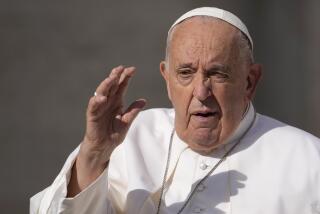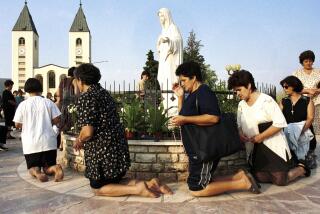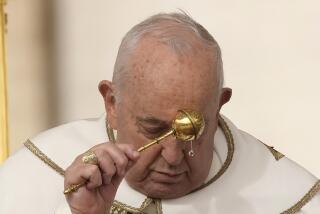When Pope Francis lands in Ireland, he’ll confront the legacy of the Catholic Church’s sex abuse scandal
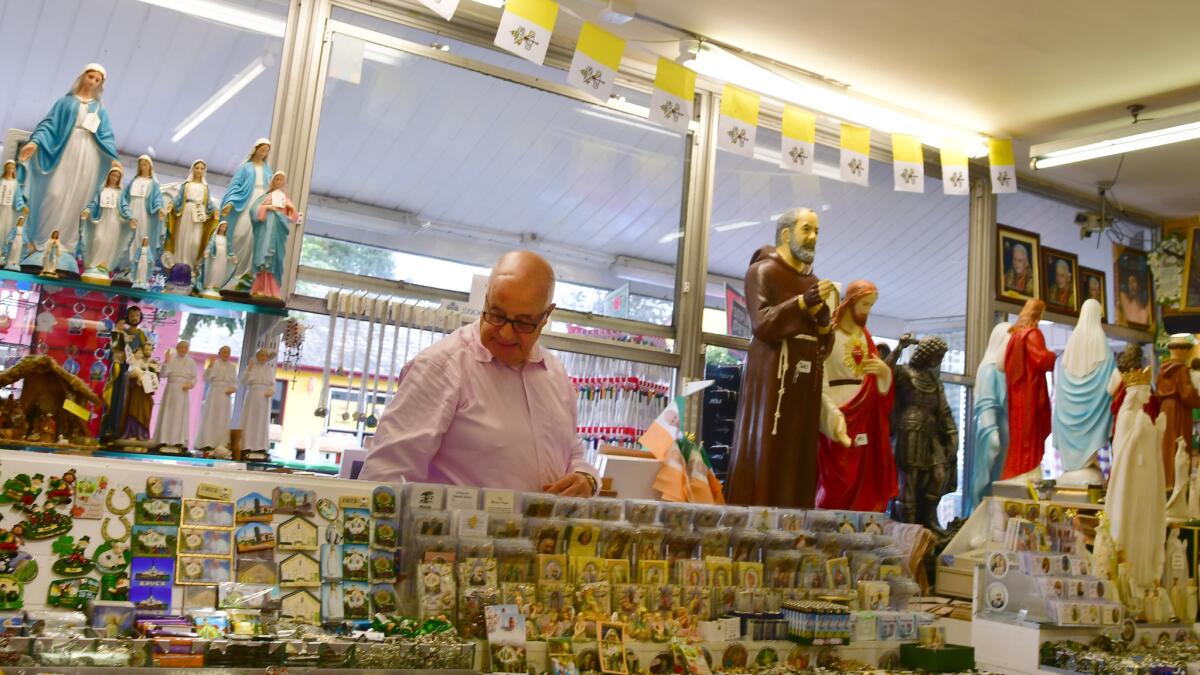
When Pope Francis lands in Dublin on Saturday morning, he will encounter a land much changed from the one that gave predecessor John Paul II a euphoric welcome nearly four decades ago.
“Devotion was at its peak, there were around 450,000 people here in Knock to see the pope,” said Bernard Byrne, 74, sitting inside his souvenir shop next to the parish church in Knock, a village in the west of Ireland. Behind him loomed statues of the Virgin Mary and framed photos of Francis, who will visit the Catholic pilgrimage site on Sunday, emulating John Paul II.
But the Ireland that greeted John Paul is no more.
Francis arrives at a time of great challenge for his Roman Catholic Church. In the past 10 days, it has been rocked by a searing grand jury report in Pennsylvania detailing more than 1,000 cases of sexual abuse by predator priests, who were protected by what the jury called “a playbook for concealing the truth.” The pope responded with a letter to Catholics worldwide admitting that “we showed no care for the little ones.”
There are few places where that truth has been felt more acutely than in Ireland, once a bedrock of faith in the Catholic Church, tenaciously preserved through centuries of discrimination under British rule.
In recent decades, Ireland has become a much more secular country, following the pattern set elsewhere in Western Europe, where church attendance has long been in decline. “There’s been a complete change in the standing of the church,” said Dara Calleary, deputy leader of Fianna Fail (Soldiers of Destiny), historically Ireland’s biggest political party.
In 2015, Ireland became the first country to legalize same-sex marriage through a referendum. That was followed this year by passage of a referendum to end its constitutional ban on abortion.
The Catholic Church opposed both referendums.
Ireland’s Prime Minister Leo Varadkar and Health Minister Simon Harris reversed their previous opposition to abortion and led this year’s campaign, which passed by a 2:1 margin. As the gay son of an Indian doctor, the 39-year-old Varadkar is touted as the personification of the cultural somersault performed by Ireland in the four decades since John Paul II’s visit.
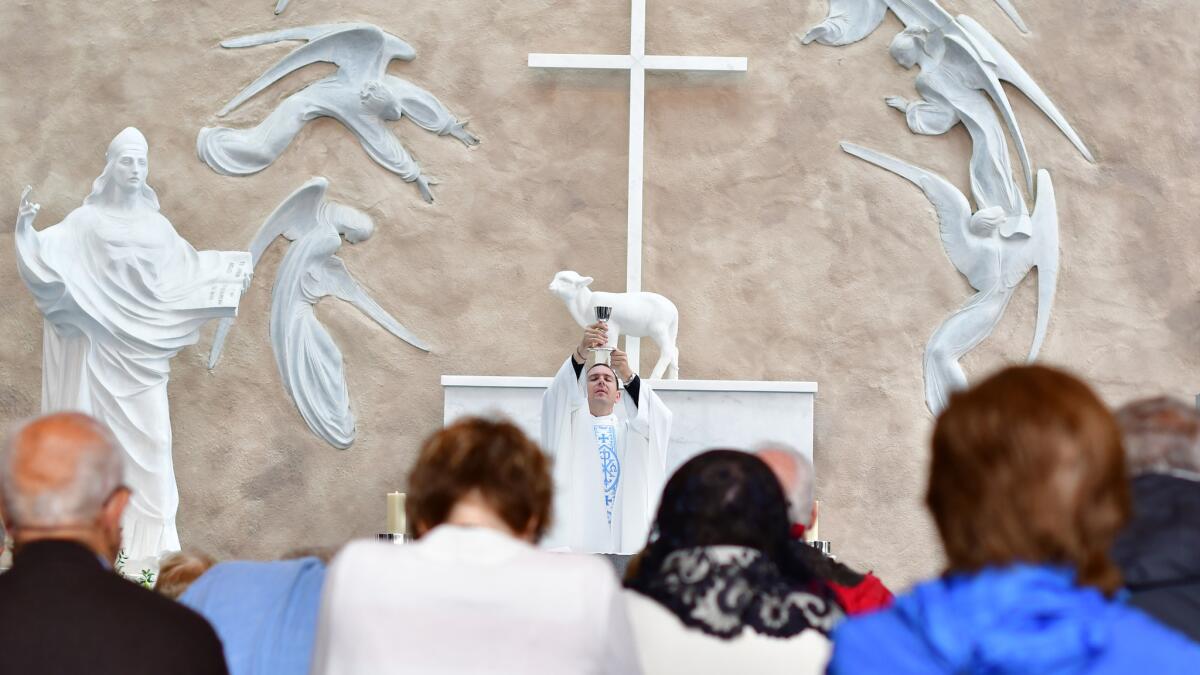
Around 2.7 million people are estimated to have attended John Paul II’s three days of public events, the first visit by a pope to Ireland. The vast numbers amounted to around half the population of the island at the time.
“There was a faith-filled, spiritual atmosphere throughout the country,” said Father Terence Harrington, one of the hundreds of priests who helped celebrate a Mass led by John Paul in Dublin’s Phoenix Park, an event attended by an estimated 1.2 million people.
The crowds will be much smaller for the 81-year-old Francis’ 36-hour visit. Security and logistics concerns mean that only 45,000 tickets have been distributed for his hourlong stopover in Knock, a tenth of the throng that milled into the village in 1979. Between 400,000 and 500,000 are expected to attend a Mass that Francis will celebrate in Phoenix Park on Sunday afternoon.
Francis will visit Ireland for the World Meeting of Families, a Catholic Church conference and festival held every three years. However the fallout from the sex abuse revelations in Pennsylvania has prompted American Cardinals Donald Wuerl and Sean O’Malley to cancel their visits to Ireland this week. Wuerl, the archbishop of Washington, was formerly a bishop in Pittsburgh and has come under intense criticism for his handling of sexual abuse cases. He was to have been the keynote speaker at the conference.
Francis’s letter this week to the world’s 1.3 billion Catholics, discussing the various sex abuse scandals, said that “no effort must be spared to create a culture able to prevent such situations from happening, but also to prevent the possibility of their being covered up and perpetuated.”
But Marie Collins, an abuse survivor who resigned from the Pontifical Commission for the Protection of Minors in 2017, citing obstruction from Vatican officials, said on Twitter that “statements from Vatican or Pope should stop telling us how terrible abuse is and how all must be held accountable. Tell us instead what you are doing to hold them accountable.”
That echoes countless other statements from survivors and many other Catholics, who have been outraged by what they see as a culture of cover-ups and complacency.
Papal spokesman Greg Burke said on Tuesday that the pope would meet survivors of clerical sex abuse while in Ireland, ending months of speculation over whether any such encounter would be arranged. But as Francis celebrates Mass in Dublin on Sunday, Collins and other abuse survivors will meet three miles away at a memorial to Ireland’s independence heroes, a counter-gathering that could attract several thousand people.
What is now a global crisis facing Francis over the church’s covering up of sexual abuse scandals — involving priests in several countries, Ireland included — is likely to top the agenda when the pope meets Ireland’s prime minister on Saturday. “There are serious issues out there and these will be discussed,” said Michael Ring, Ireland’s minister for rural and community development.
After opening the new Pope Francis Plaza in Knock on Tuesday, Ring said in an interview that any differences in opinion should not undermine the visit. “He will be respectfully received as he should be as a head of state,” Ring said.
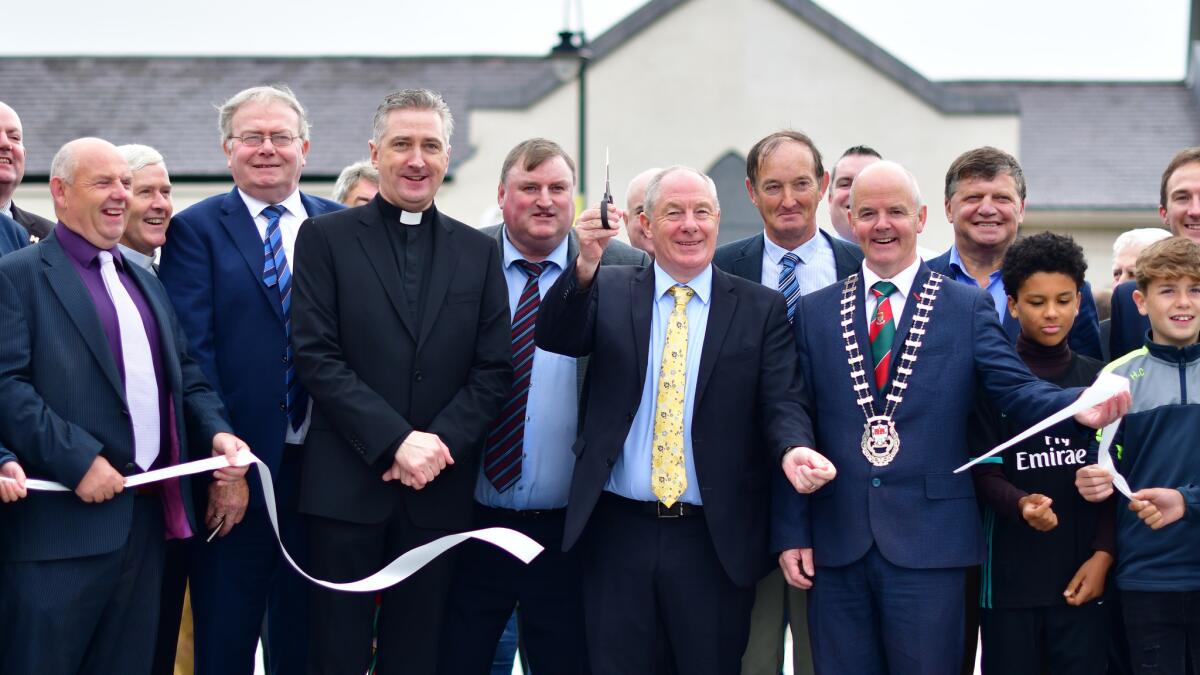
But some of Ireland’s diminishing number of churchgoers are unsure if they can count on the leader of the Catholic Church being greeted with anything more than respect.
“People seem not be as interested now as back then [1979],” said Mary Prenty, who will wake up at 4:30 on Sunday morning to get to Knock in time for the pope’s arrival.
But others suggest a sense of occasion, even nostalgia, will trump any ill feeling toward the church.
“It’s 40 years since the last pope came,” said Anne-Marie Tiernan, one of hundreds of volunteers who will help manage the crowd that will attend Francis’ visit to Knock.
“Whatever about people’s anger with the institution, there’s still enormous faith and that will be seen on display this weekend,” said Dara Calleary.
Around Knock, host to a million pilgrims a year, vignettes of that faith linger among the legions of devout who come to pray, where, they believe, the mother of Jesus Christ appeared nearly a century and a half ago.
Aldrin Bañas, who emigrated from the Philippines to Ireland 17 years ago, said he visits Knock several times a year. To Bañas, the sometimes mist-shrouded village is a place where prayers are answered. “We asked, we struggled, we were given,” he said.
Roughneen is a special correspondent.
More to Read
Sign up for Essential California
The most important California stories and recommendations in your inbox every morning.
You may occasionally receive promotional content from the Los Angeles Times.
